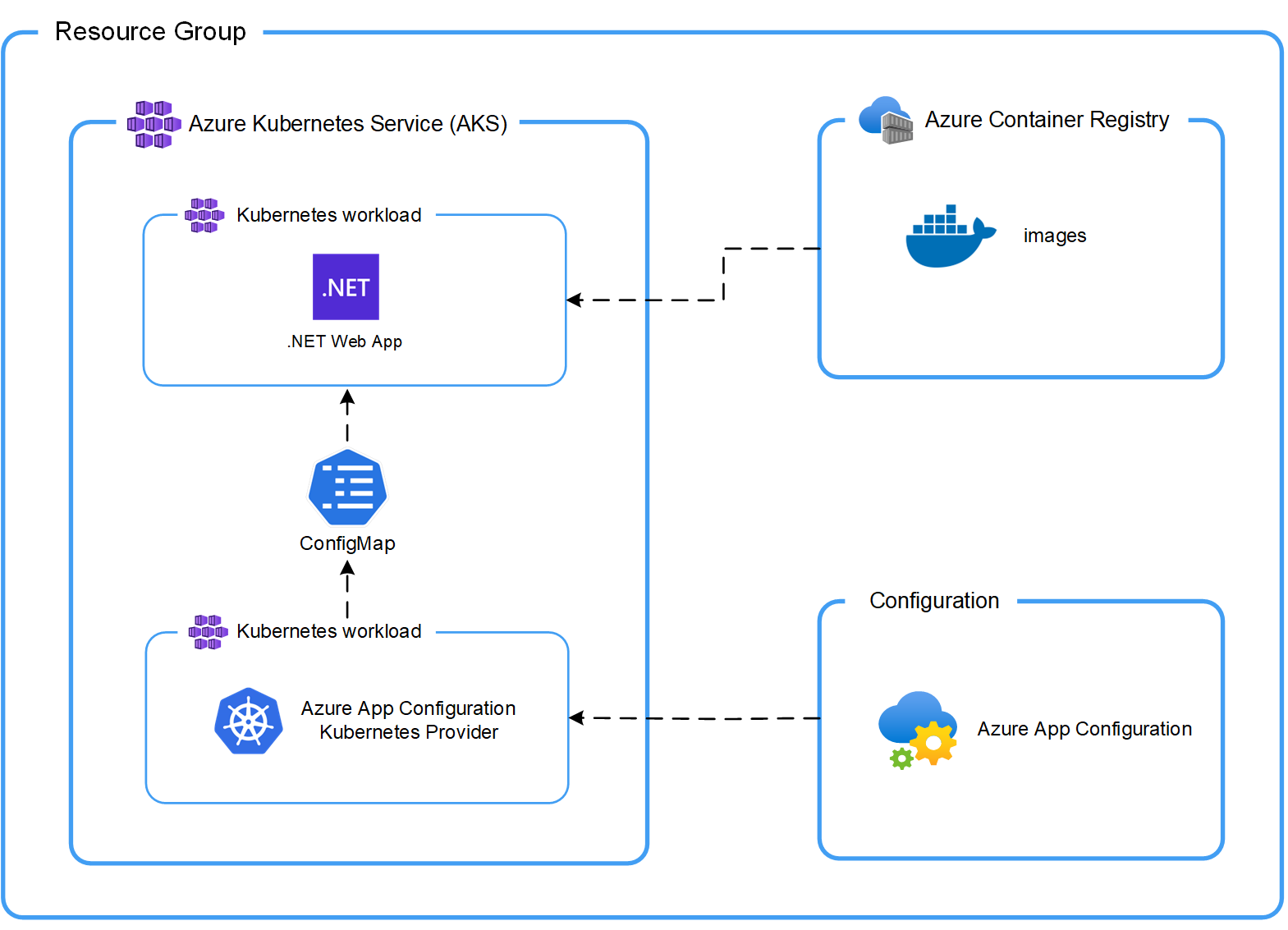The repository hosts of the following components:
- Azure Developer CLI configuration
To understand more about the Azure Developer CLI architecture and to create a similar template, you can refer to Make your project compatible with Azure Developer CLI.
The template uses Bicep and the Azure Developer CLI (azd). The azure.yaml schema defines and describes the apps and types of Azure resources that are included in these templates.
The following infrastructure resources defined as Bicep templates in the infra folder are created:
- Azure Kubernetes Service (AKS) cluster
- Azure Container Registry
- Azure App Configuration
The template uses the following event hooks to customize the workflow:
- predeploy to install additional cluster components (Azure App Configuration Kubernetes Provider).
This quickstart will show you how to initialize the template, provision the infrastructure, and deploy the application:
mkdir my-app
cd my-app
# First-time project setup. Initialize a project in the current directory, using this template.
azd init -t azure-appconfig-aks
# Provision and deploy to Azure
azd upTo learn more about the template, follow the steps below:
- Initializing the template
- Deploying infrastructure
- Updating application source
- Deploying the application
If you are starting from this end state repo, use azd init to clone this template locally.
mkdir my-app
cd my-app
azd init -t azure-appconfig-aksDeploy the infrastructure by running azd provision.
azd provisionYou will be prompted for the following information:
Environment Name: This will be used as a prefix for the resource group that will be created to hold all Azure resources. This name should be unique within your Azure subscription.Azure Subscription: The Azure Subscription where your resources will be deployed.Azure Location: The Azure location where your resources will be deployed.
You can monitor the progress in the terminal and on the Azure portal. After a few minutes, you should see the resources deployed in your subscription.
This template deploys a simple demo ASP.NET web application to the AKS cluster. If you want to deploy your own application, you can replace the following content with your own:
- You should put your source code in the
app/srcfolder. - You should put your source configuration in the
app/configfolder. - You should put your Kubernetes manifests in the
app/manifestsfolder.
Running azd deploy will build the applications defined in azure.yaml by running a Docker build then the Azure Developer CLI will tag and push the images to the Azure Container Registry. Each deployment creates a new image tag that is used during the token replacement.
azd deployAzure Developer CLI will also apply the Kubernetes manifests in the path configured in azure.yaml. The name specified in azure.yaml will correspond to the Kubernetes namespace that will be created on the cluster where all resources will be deployed to.
While applying the manifests, the Azure Developer CLI will also perform a token replacement for the placeholders defined in the Kubernetes manifests to insert the container image location and App Configuration endpoint.
To clean up resources that were deployed to your subscription, run azd down.
